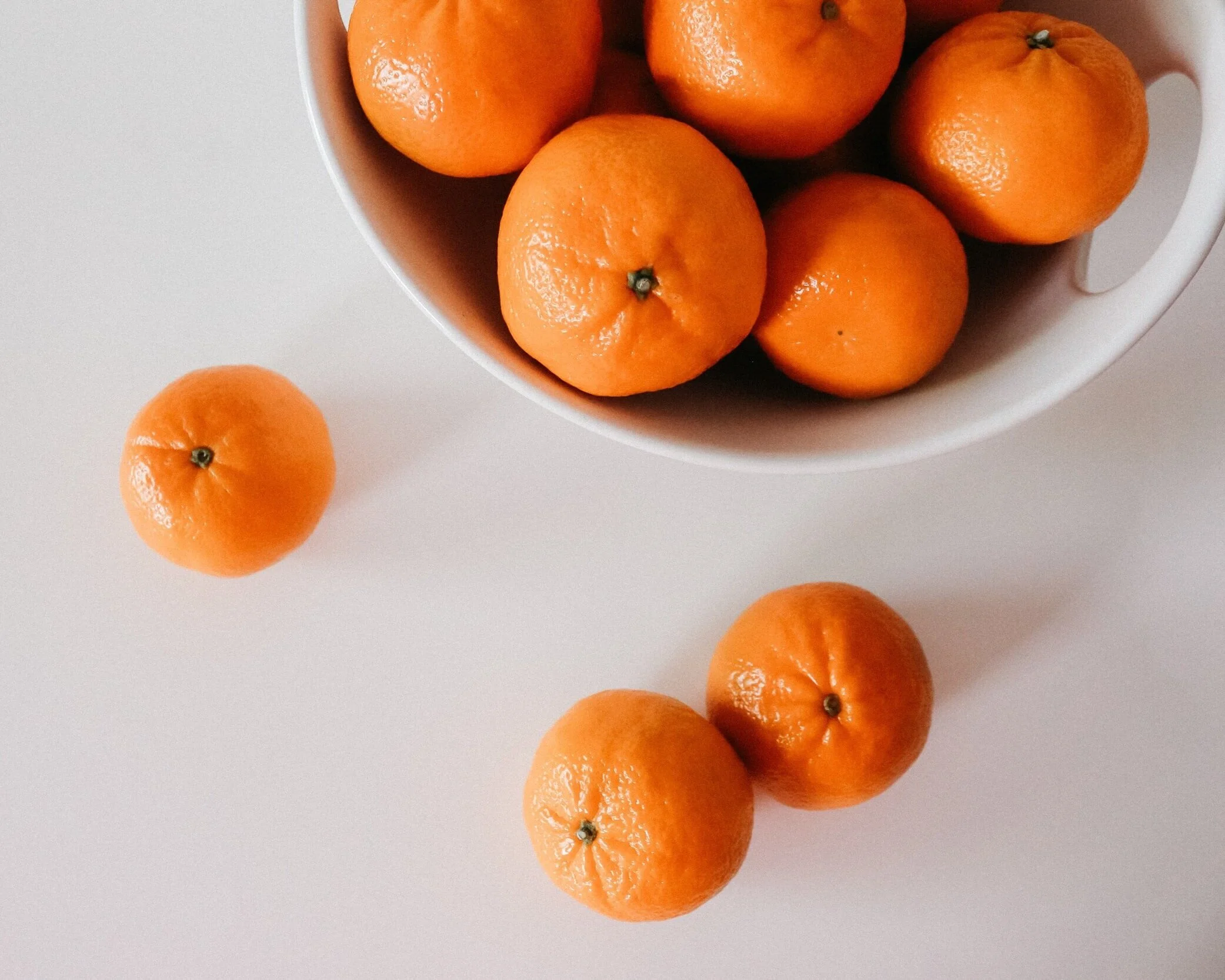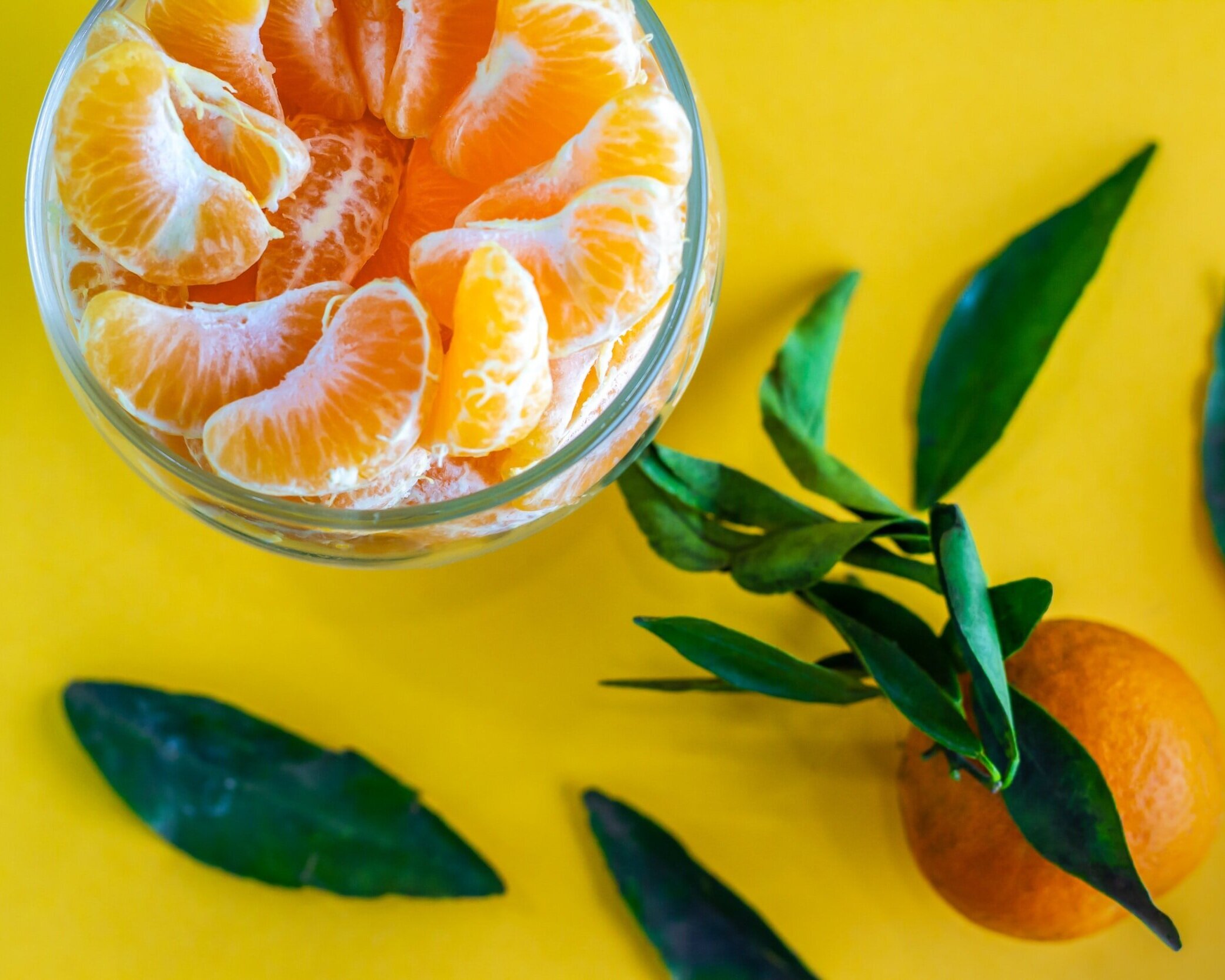Useful properties of tangerines
Why tangerines (“Christmas orange”) are good for you: 10 scientific arguments
For many, the smell of tangerines is the smell of celebration, magic, and nostalgia for childhood. Juicy mandarin fruits will help you feel the New Year's mood just like a decorated Christmas tree. And tangerines are also good for health.
The aroma of these fruits alone creates a sense of celebration. Most tangerines hit the shelves in December. There is everything here: from miniature Sino-Japanese fruits to large hybrids native to Turkey, Morocco, and Tunisia. We figured out how to choose the sweetest and juiciest tangerines and what happens if you overdo it with a New Year's delicacy.
What you need to know about tangerines
Tangerines grow on a small evergreen tree. They ripen in November-December, which is why in English-speaking countries the fruit is usually called “Christmas orange”. Compared to other citrus fruits, a tangerine has a brighter scent, and its skin is easier to separate from the pulp.
China is considered the birthplace of citrus. It was there that the tradition of celebrating winter holidays with tangerines arose. In addition to other New Year's gifts, each guest must present two tangerines to the owners of the house - as a sign of wishes for financial well-being. The fact is that in Chinese the phrase "a pair of tangerines" sounds almost the same as the word "gold".
There are about two hundred varieties and hybrids of this fruit in the world - they differ in shape, weight, skin color, and taste. On store counters, varieties such as clementine, murcott, nadorkott, satsuma, and shiva-mikan are usually found. Of these, the sweetest are the first two. Citrus fruits are brought to us mainly from China, Morocco, Egypt, Turkey, Algeria and Iran.
"Clementine". A hybrid of orange and tangerine. They are considered the most delicious of the hybrid ones. The fruits are flattened at the top and bottom, bright orange in color, sweet and juicy, with a delicate odor.
"Murcott". Hybrid of mandarin and tangerine. It is small, most often with a lot of small seeds and dense septa, but juicy and sweet. You can buy it from November to February.
"Nadorkott". Hybrid variety originally from Morocco. These are not very sweet tangerines, with reddish flesh and easily peeled skin. Usually they have no bones, but, when pollinated, they can be very "bony". These are early tangerines: they ripen in the summer and appear on the market earlier than others.
"Satsuma". Real tangerines, not hybrids. They can be identified by size and weight: they are medium-sized (up to 30 grams). As a rule, such tangerines are sour or sweet and sour, pitted, with a loose, bumpy skin, rough pulp, and slices are often of different sizes. Tangerines of this variety ripen from November to December.
"Unshiu". This variety is typical for Abkhaz tangerines. Often it is not singled out as a separate variety, but is referred to the "satsuma" group. Fruits are spherical, flattened at the base, slightly bumpy, weighing 70-100 grams. The rind is bright orange, easily separated from the pulp. The pulp is juicy, fleshy, sweet, with a slight sourness. These tangerines have no seeds. They begin to ripen in November. They are the most hardy of the tangerines.
"Shiva-Mikan". This is also a real mandarin. Its fruits are flattened and small, with a bright yellow skin. The "Shiva-Mikan" variety is early, these tangerines ripen at the end of October.
Why are tangerines good for you?
Mandarins are a rich source of vitamins, antioxidants, and other nutrients. And since the fruits grow on trees, they do not contain heavy metals and radionuclides that can accumulate in the soil.
energy value - 53 kcal
carbohydrates - 13 g
proteins - 0.8 g
fats - 0.3 g
water - 85 g
Vitamin content (% of daily value):
vitamin A - 14%
vitamin C - 44%
vitamin B1 - 2%
vitamin B3 - 2%
vitamin B5 - 2%
vitamin B6 - 4%
vitamin B9 - 4%
calcium - 4%
magnesium - 3%
potassium - 5%
Mandarins strengthen the immune system
Mandarins contain a lot of vitamin C, which is essential during the cold season. It activates immune cells, helping the body fight infections and viruses. The concentration of vitamin C depends on the transport conditions and the variety of tangerines. If the fruits are frozen during transportation, they will not contain a lot of vitamin C. Most of all, ascorbic acid is found in clementines.
2. Tangerines normalize bowel function
The fruit contains fiber. Moreover, both soluble and insoluble. The first serves as a prebiotic and stimulates the growth of beneficial bacteria that improve digestion and restore the microflora of the gastrointestinal tract. The second one helps the intestinal motility. This allows other nutrients to be absorbed better. One medium tangerine provides 8% of the daily intake of dietary fiber.
3. Tangerines reduce anxiety
Mandarins are effective in combating anxiety and stress. And it's not just the bright color of the fruit. Their B vitamins protect the nervous system and gently soothe, while vitamin C regulates the adrenal glands by reducing the synthesis of the stress hormone cortisol. In addition, mandarin essential oil is one of the best natural remedies for insomnia and bad mood.
4. Tangerines help with colds
Do not remove white streaks when peeling fruit. They contain the flavonoid nobiletin, which has a pronounced anti-inflammatory effect. For colds, it is also advised to drink tangerine peel tea: it cures dry cough well, liquefies phlegm, and removes it from the lungs. Ascorbic acid helps prevent dehydration at elevated temperatures, and mandarin oil prevents bacteria and fungi from growing.
5. Mandarins speed up metabolism
Despite the fact that tangerines are quite high in sugar, they are low in calories and promote weight loss. Potassium and calcium in their composition improve metabolism, and fiber causes a feeling of fullness and satisfies hunger for a long time. American researchers from Wake Forest University found that if you add 10 g of soluble fiber to your daily diet, you can get rid of belly fat and reduce the risk of obesity by 3.7%.
6. Tangerines improve skin condition
Thanks to the abundance of vitamins A and C, citrus improves skin condition. In addition, tangerines accelerate wound healing and fight premature signs of aging: wrinkles, dryness, and decreased skin elasticity. Ascorbic acid also stimulates the synthesis of collagen, a protein essential for the building of bones, tendons, hair, and nails.
7. Protects the kidneys from stones
You can eat tangerines more often to reduce your risk of kidney stones. Scientists from the University of Friedrich II in Naples have found that a diet rich in citrus fruits increases the level of citrates in the urine. These substances inhibit the crystallization and precipitation of calcium salts, which turn into solid deposits - calcifications. According to the researchers, the majority of kidney stones appear precisely because of the low level of citrates in the urine.
8. Mandarins lower the risk of developing neoplasms
The flavonoids in citrus fruits do more than reduce inflammation. They protect the body from free radical imbalances and oxidative stress that can lead to tissue damage and cancer. In addition, these antioxidants can inhibit the growth of cancer cells. Moreover, it is not so much the pulp of tangerines that is useful, but their peel - it contains the most flavonoids. By their number, it overtakes the zest of lemon and grapefruit.
9. Strengthens the heart muscle
Mandarins contain the alkaloid synephrine, which lowers the level of "bad" cholesterol. They also contain a lot of potassium: potassium removes excess water, normalizes blood pressure and strengthens the heart muscle. Vitamin C is no less useful for the heart. It makes the walls of blood vessels strong and elastic. In addition, ascorbic acid helps the gland to be absorbed better. With its deficiency, the heart has to work harder than normal to provide oxygen to the entire body.
10. Mandarins improve eyesight
Tangerines are good for eye health. Vitamin A improves visual acuity, strengthens the cornea, helps to see better in the dark, and protects mucous tissues. And vitamin C is responsible for the blood supply to the visual organs, reduces eye pressure, and reduces the risk of developing cataracts by 33%. But keep in mind: tangerines are best eaten fresh for maximum effect. Ascorbic acid is destroyed under the action of high temperature.
The harm of tangerines
Despite all the benefits of tangerines, they are contraindicated for some people. Citruses are prohibited in individuals with acute nephritis, hepatitis, and cholecystitis. Also, it is better to avoid them for those who suffer from gastric or duodenal ulcers.
Doctors advise against consuming large amounts of tangerines for those with enteritis, colitis, and gastritis because of the high acidity. The fact is that the fruit acids contained in tangerine irritate the intestinal and stomach mucous membranes. For the same reason, the fruit should not be eaten on an empty stomach. In addition, like other citrus fruits, tangerines are a strong allergen. They can cause rashes, swelling of the mouth, and even anaphylaxis.
In addition, tangerines can be harmful to people with diabetes, as they are high in sugars in their pulp. They should use this fruit with caution or completely remove it from the diet. And due to the abundance of fiber, tangerines can cause bloating and flatulence.
Pediatricians do not recommend giving citruses to children under three years old. Adults, according to nutritionists, can eat no more than five fruits a day. Moreover, after each use, it is worth rinsing your mouth with water. If you are in doubt about whether you can eat tangerines, consult a specialist.
Buying and storing tangerines
To buy ripe and sweet tangerines, take a close look at the rind. It should be free of stains, cuts, and soft areas. The latter indicate that the fruits are beginning to rot.
Also pay attention to the tightness of the skin. If the tangerine is overripe, it will lag far behind the pulp. Choose fruits with firm skin and uniform color. Small scratches and abrasions are acceptable- this will not affect the taste. Keep in mind that the heavier the citrus, the more juicy it is. But you should not be guided by the presence of twigs and leaves. This is not an indication of freshness, but a marketing gimmick.
You can buy tangerines for the New Year's table in advance. If all conditions are met, they will be able to maintain their freshness for up to 1.5 months. The optimum storage temperature is 37–46 degrees Fahrenheit. Without a refrigerator, the shelf life will be reduced to a week. If tangerines are peeled and sliced, they should be wrapped in a closed container or bag and placed in the refrigerator.
Before eating fruits, be sure to rinse them with warm water. Some manufacturers treat the fruit with antifungal agents and wax to maintain its appearance and prevent mold growth.















